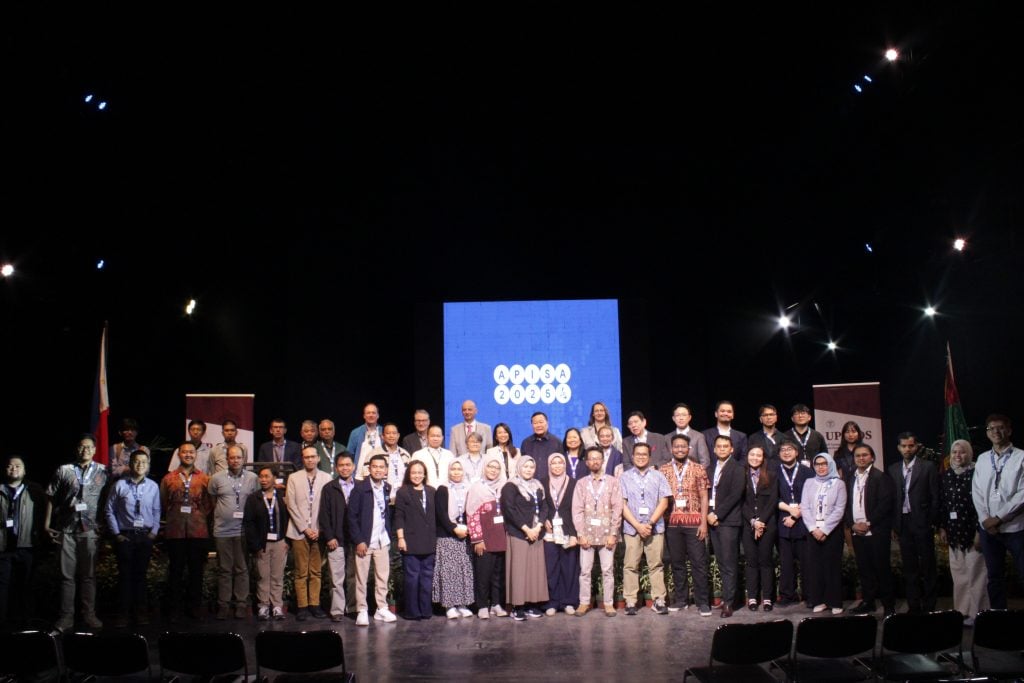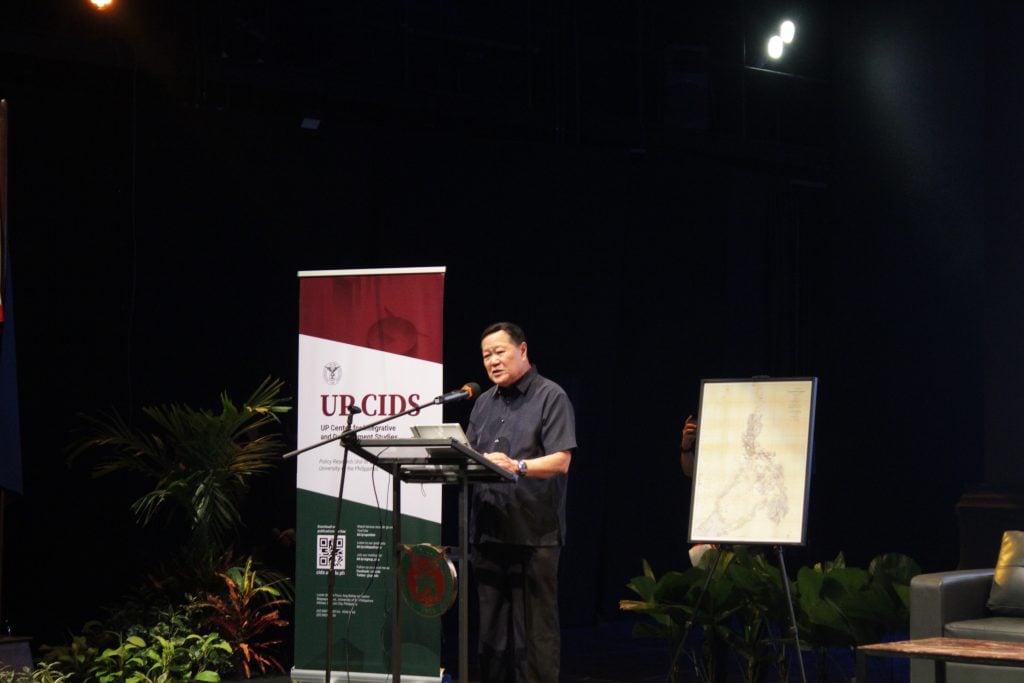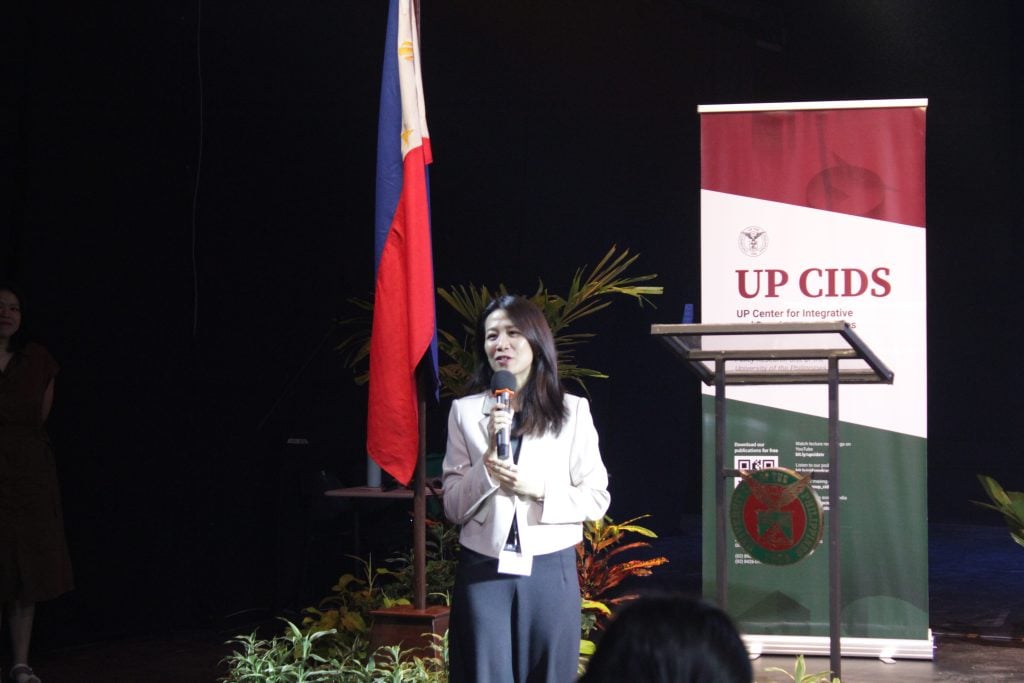APISA Conference 2025: Geopolitics, Climate, and Democracy in the Multipolar Asian Landscape
The APISA Conference 2025, held from October 17 to 18, 2025, brought together scholars and policy experts to tackle the dynamic geopolitical and economic shifts reshaping the Indo-Pacific region. The two-day event provided a crucial platform for deep analysis into traditional and non-traditional security challenges, transitioning from an in-person session at the IBG-KAL Theater on Day 1 to an online format via Zoom on Day 2.
The conference featured presenters from Australian National University (Australia); Fudan University (China); City University of Hong Kong and Hong Kong Chung Hai College (Hong Kong); Jawaharlal Nehru University, Magadh University, Manipal Academy of Higher Education, and University of North Bengal (India); Universitas Andalas and Universitas Indonesia (Indonesia); University of Turin (Italy); Hiroshima University and Waseda University (Japan); Norwegian Institute of International Affairs (Norway); Jagiellonian University of Krakow (Poland); Ewha Womans University, Keimyung University, and Seoul National University (South Korea); Universidad Carlos III de Madrid (Spain); National Chengchi University, National Dong Hwa University, and Overseas Chinese University (Taiwan); and National Defense College (United Arab Emirates). Over 60 participants attended the conference onsite, while 30 participants attended the online Zoom session.

A Call for Strategic Clarity: The Keynote Address
The conference opened with remarks from Dr. Percival Almoro, Assistant to the Vice President for Research and Innovation (OVPRI) and from Dr. Rosalie Arcala Hall, Executive Director of the UP Center for Integrative and Development Studies (UP CIDS). UP CIDS is the institutional host of APISA Conference 2025. The pivotal Keynote Address was delivered by Hon. Justice Antonio T. Carpio, Former Associate Justice of the Supreme Court of the Philippines. In his speech, Justice Carpio recounted his advocacy for the Philippines’ sovereignty over the West Philippine Sea (WPS), a maritime territory highly disputed by China and other neighboring countries. To strengthen the Philippines’ claims over the WPS, Justice Carpio unveiled the framed copies of the 1875 Spanish map, “Carta General del Archipelago Filipino,” that delineates the country’s long-standing sovereignty over the Kalayaan Island Group and Scarborough Shoal, some of the resource-rich, key island groups in the WPS. This led him to emphasize that the other states disputing over the WPS should formalize their claims to the International Court of Justice. Justice Carpio said that the territorial disputes can be settled diplomatically in accordance with the mandates of the UN Charter. He further added that the Philippines can submit evidence to the court of world opinion should the other disputant states refuse to submit theirs. This way, he said, the right prevails over might through the Rule of Law.

Key Themes and Focus Areas
The parallel sessions cover a wide array of topics, emphasizing geopolitical dynamics, security concerns, economic orders, and internal political transitions within Asia.
Geopolitics and Regional Order
Several sessions focus on the evolving Indo-Pacific order and the role of major powers.
- Competing Strategies and Emerging Partnerships: Discusses mini-lateralism, the Sino-centric world order via the Global Development Initiative, and India-Philippines strategic interests.
- Competing Visions of Security and Order: Explores regional security partnerships, the securitization of non-traditional security issues by the QUAD, and India’s strategic dualism.
- Historical Legacies, Soft Power, and Strategic Choices in the Indo-Pacific: Considers historical treaties, the influence of economic and cultural orientations on attitudes toward China and the US, and soft power like K-Dramas.
Security and Maritime Disputes
A significant portion of the sessions addresses security challenges, particularly in the South China Sea/West Philippine Sea.
- Security and Sovereignty in the West Philippine Sea: Addresses Philippine defense policy, legal realities, gray-zone warfare, and the perception of third-party states.
- Non-Traditional Security and Emerging Challenges in the Indo-Pacific Order: Discusses de-dollarization, food/water security innovations (e.g., in Kazakhstan), and ASEAN’s integration of public health in climate diplomacy.
- Maritime Strategy and Strategic Engagements in the Indo-Pacific: Focuses on China’s distant water fleet and fishing securitization, India’s evolving maritime strategy, and India-Philippines relations.
- Contesting Power and Security in the South China Sea and Beyond: Investigates China’s presence, port hierarchy, and the strategic calculus of the Philippines and Taiwan amidst U.S.-China rivalry.
Political Economy and Trade Dynamics
Sessions also tackle the intersection of economics, trade, and political transitions.
- The Political Economy of Climate Transitions: Covers climate finance, the impact of uncertainties on technology Global Value Chains (GVCs), and the politics of hedging in ASEAN’s energy transition.
- Asia’s Responses to Shifting Trade Dynamics: Looks at Indonesia’s trade strategies, the impact of US tariffs on India and Indonesia, and China’s food imports on Philippine food security.
- Geoeconomics and the Construction of Regional Economic Orders: Explores developmental cooperation (EU-Cambodia), the role of EU-China-US tech competition, and Japan’s role in the CPTPP.
- Trade, Security, and Strategic Alignments in a Divided Indo-Pacific: Examines the Trans-Pacific Partnership, South Korea’s brokerage potential, and the divergence among Southeast Asian states in the US-China rivalry.
Internal Politics and Urban Governance
Sessions on domestic issues included authoritarianism and local governance.
- Regionalism, Foreign Policy, and Political Transitions in Asia: Features topics like the reconfiguration of regionalism in South Asia (beyond SAARC), Philippine foreign policy during different administrations, and authoritarian conservatism in New Order Indonesia.
- Rethinking Authoritarian Nostalgia in the Philippines: Focuses on competing authoritarian nostalgias and the politics of redemption surrounding the second Marcos presidency.
- Urban Governance as a Critical Site: Discusses issues in various Philippine cities, including inclusive cities (Davao), reclamation politics (Cebu), river management (Iloilo), and the political economy of mangrove planting.
The concluding remarks were delivered by Dr. Haruko Satoh (Osaka University), member of the APISA Executive Board. Dr. Ratih Indrawasri (Parahyangan Catholic University (UNPAR), Bandung, Indonesia) announced that the 2026 APISA Conference will be held in Bandung in August.
